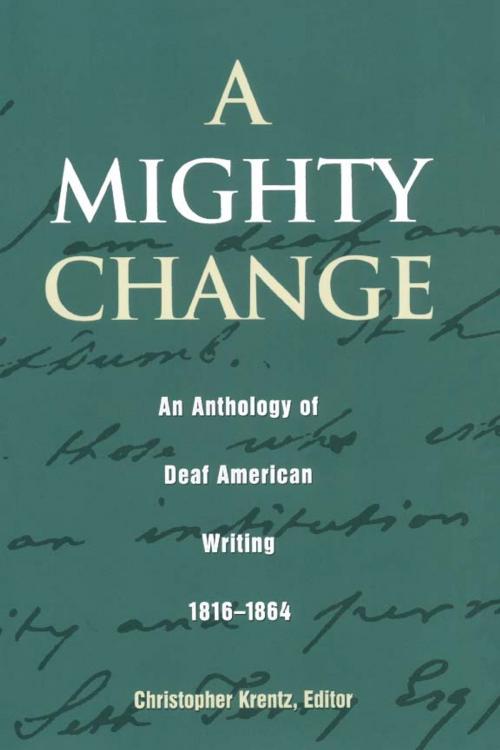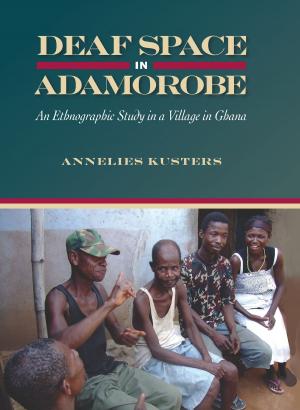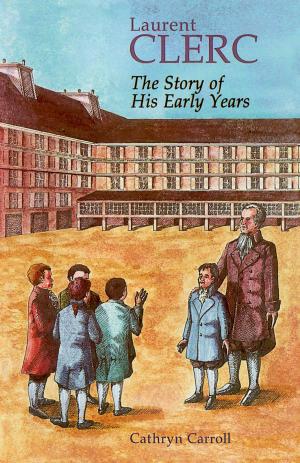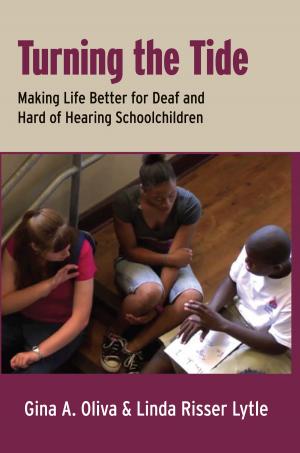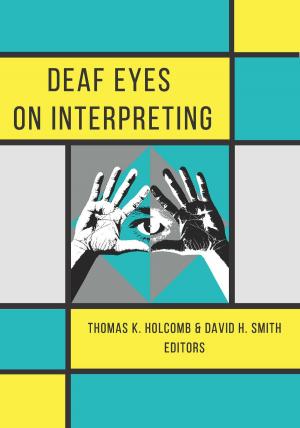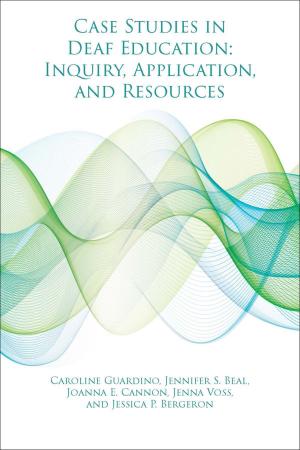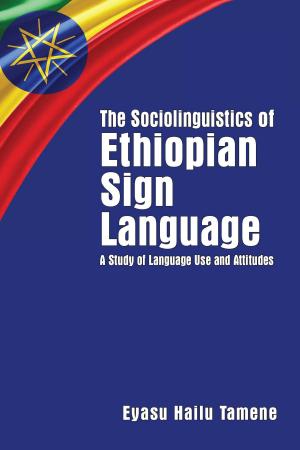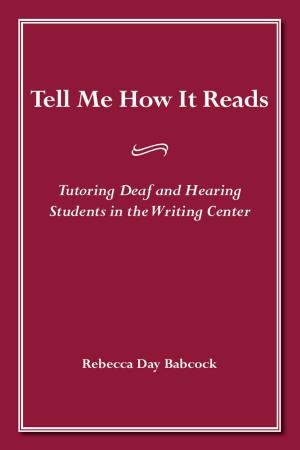A Mighty Change
An Anthology of Deaf American Writing, 1816 - 1864
Nonfiction, Social & Cultural Studies, Social Science, Disability, Fiction & Literature, Essays & Letters, Essays| Author: | ISBN: | 9781563681530 | |
| Publisher: | Gallaudet University Press | Publication: | January 9, 2013 |
| Imprint: | Gallaudet University Press | Language: | English |
| Author: | |
| ISBN: | 9781563681530 |
| Publisher: | Gallaudet University Press |
| Publication: | January 9, 2013 |
| Imprint: | Gallaudet University Press |
| Language: | English |
Gallaudet University Press recently inaugurated a new series, Gallaudet Classics in Deaf Studies, with the mission of returning to print historically significant writings on Deaf culture. In this second publication in the series, Christopher Krentz has gathered original writings and speeches by deaf Americans beginning with Laurent Clerc's 1816 journal entries during his voyage to America to co-found the first permanent school for the deaf in the United States and ending in 1864 with John Carlin and Clerc speaking at the dedication of the National Deaf-Mute College (now Gallaudet University). As the title of the book reminds us, quoting a deaf man in the 1860s, this was a period of a remarkable and "mighty change for deaf Americans. The collection is modest in its range with the writings of about a dozen deaf people selected for their literary qualities as well as their historical significance. As Krentz points out in his introduction, the writers represent only that minority within the deaf community who find written English a congenial mode of expression. Nevertheless, there is gold here for anyone with an interest in deaf history. Having in one place the extraordinary 1850s debate between J.J. Flournoy, Edmund Booth, and others on the question of whether deaf Americans ought to seek the establishment of a deaf state is worth the price of the book in itself. In addition, Krentz has written a fine introductory essay to put the selections into historical context, as well as a brief introduction to each chapter, and textual notes to elucidate obscure references or to elaborate points of interest. Teachers of Deaf or Disability Studies will find the book useful for their undergraduate courses and no scholar of Deaf history or literature will want to be without a copy on the shelf. -- Douglas Baynton, Department of History, University of Iowa Christopher Krentz teaches English and American Sign Language at the University of Virginia in Charlottesville, VA.
Gallaudet University Press recently inaugurated a new series, Gallaudet Classics in Deaf Studies, with the mission of returning to print historically significant writings on Deaf culture. In this second publication in the series, Christopher Krentz has gathered original writings and speeches by deaf Americans beginning with Laurent Clerc's 1816 journal entries during his voyage to America to co-found the first permanent school for the deaf in the United States and ending in 1864 with John Carlin and Clerc speaking at the dedication of the National Deaf-Mute College (now Gallaudet University). As the title of the book reminds us, quoting a deaf man in the 1860s, this was a period of a remarkable and "mighty change for deaf Americans. The collection is modest in its range with the writings of about a dozen deaf people selected for their literary qualities as well as their historical significance. As Krentz points out in his introduction, the writers represent only that minority within the deaf community who find written English a congenial mode of expression. Nevertheless, there is gold here for anyone with an interest in deaf history. Having in one place the extraordinary 1850s debate between J.J. Flournoy, Edmund Booth, and others on the question of whether deaf Americans ought to seek the establishment of a deaf state is worth the price of the book in itself. In addition, Krentz has written a fine introductory essay to put the selections into historical context, as well as a brief introduction to each chapter, and textual notes to elucidate obscure references or to elaborate points of interest. Teachers of Deaf or Disability Studies will find the book useful for their undergraduate courses and no scholar of Deaf history or literature will want to be without a copy on the shelf. -- Douglas Baynton, Department of History, University of Iowa Christopher Krentz teaches English and American Sign Language at the University of Virginia in Charlottesville, VA.
